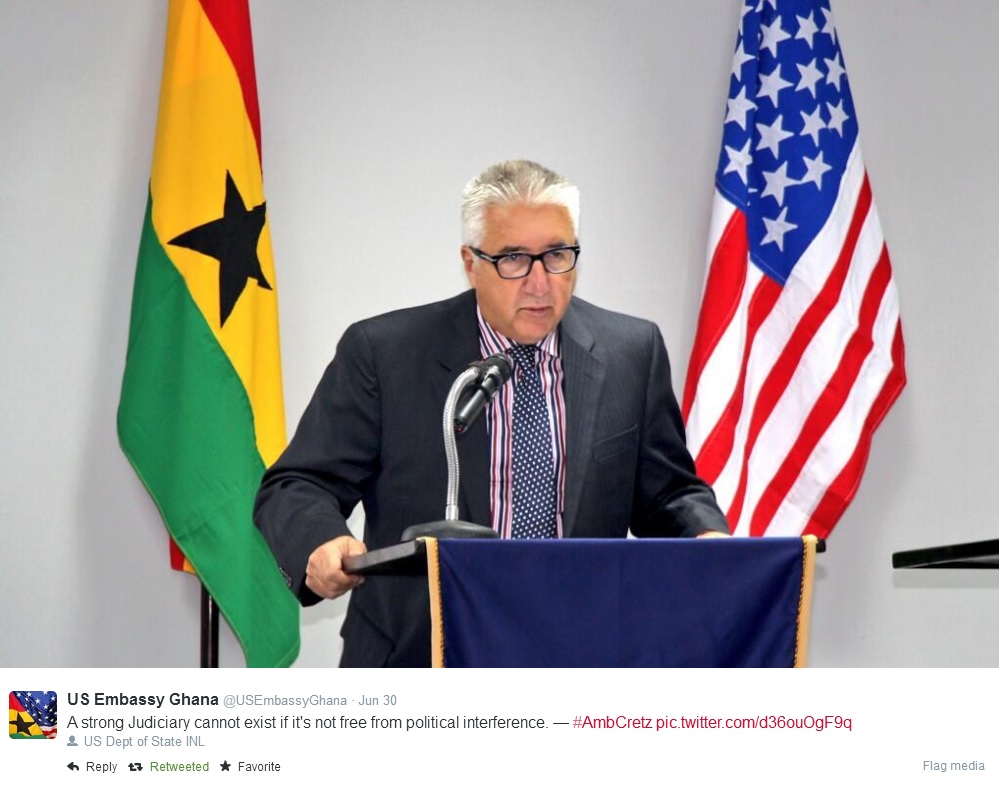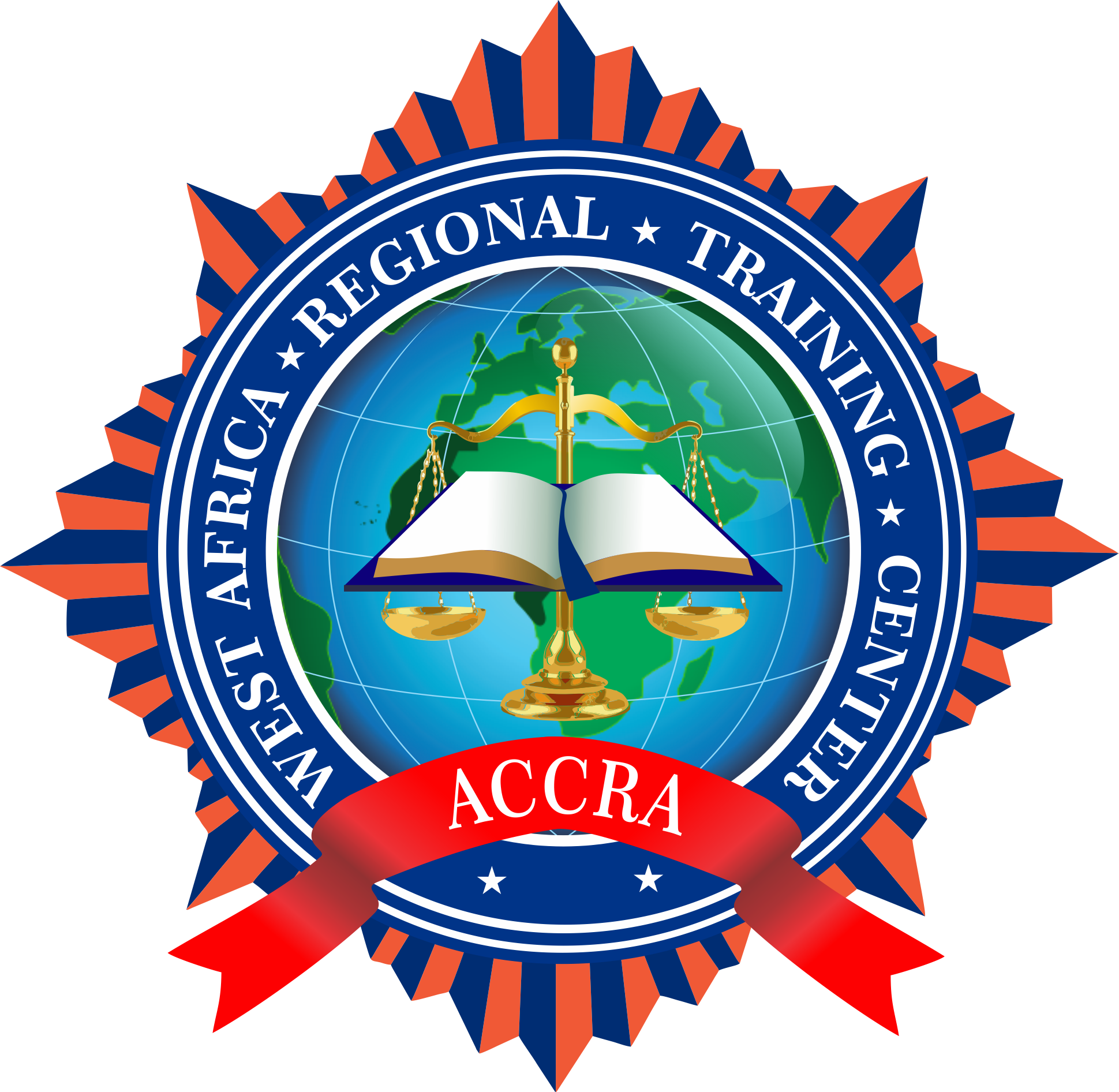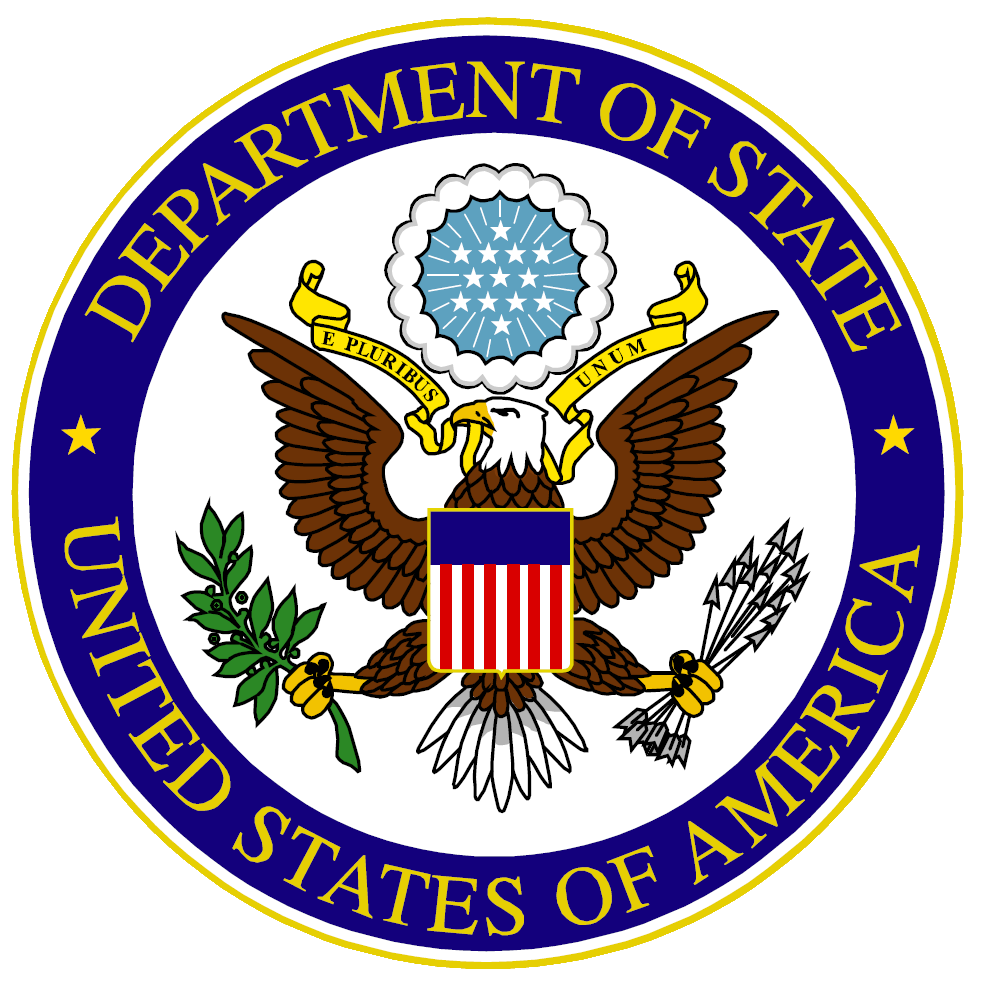"The Role of the Judiciary in a Democratic Society" Opening Ceremony by Ambassador Cretz
Published

Her Ladyship, Chief Justice Georgina Wood
Honorable Justices from the sub-region
RTC staff, instructors
Ladies and Gentlemen…
Good morning. On behalf of the United States of America, I’d like to welcome everyone from both outside of Ghana and within to the Regional Training Center this morning. It is an honor to be in the presence of such an esteemed group of justices from across West Africa.
This Training Center was established in January 2012 as a partnership between the United States and the Government of Ghana. The Center’s mandate is to enhance the technical capacity of rule of law institutions, and to promote regional dialogue on the many governance and security challenges facing the region.
Courses such as the one you are about to embark upon provide an important platforms for addressing these challenges head on and for developing action plans to mitigate such challenges. Our focus on the judiciary with this pilot course is in line with President Obama’s pledge to expand our engagement with rule of law actors – a pledge he made when he met with African justices during his trip to Senegal in June 2013.
As esteemed representatives of your country’s legal traditions, let me take this opportunity to salute the fine work that all of you are doing. Your task, to deliver justice fairly and with integrity, sometimes even in the face of threats and intimidation, is certainly not an easy one, but it is essential to any country’s democratic development, including my own.
A strong democracy cannot exist without a strong judiciary that is independent from politics and that operates transparently, so that citizens can have confidence that the process is free from undue influences. Nor can the judiciary itself operate without accountability, because even judges are not above the law.
I appreciate the difficult environment that many of you work under to carry out your vital mandates. Many of you have limited or out-dated resources, some of you face substantial case backlogs due to a shortage of courts, and some of you must perform your work without the benefit of case management software. I also know, however, that many of you are working diligently on critical reforms needed to strengthen your institutions. The United States encourages you to push forward on these reforms and stands ready to support your efforts in any way possible.
To give you an example of one of ways the U.S. can assist, at the request of Her Ladyship Chief Justice Wood, the United States recently sponsored 10 Ghanaian judges on a two-week trip to the U.S. to observe best practices of the American judicial system. This group had the opportunity to interact with a variety of legal institutions and experts, and to learn about the legal challenges we face in the United States.
Exposure to alternative processes and substantive dialogue with international counterparts regarding the administration of justice can be valuable. I encourage those of you from Liberia, Nigeria, and Sierra Leone to consider proposing hosting digital video conferences, speaker programs, or inquiring about other possibilities with my Embassy counterparts in your respective countries.
I believe that the rule of law is a pillar of any democracy. It is essential to good governance; it is what upholds universal human rights, and it is a foundation for economic growth. Courts are venues where justice and equality can be realized for women and children and the poor, for marginalized groups, for victims of discrimination, and victims of violence.
Strong justice systems also promote peace and stability. Societies are stronger and more stable when there are checks and balances on government power, when citizens know that their rights will be protected from arbitrary or capricious actions, and when they have peaceful recourse when they've been on the receiving end of injustice.
The importance of the courts in carrying out this role in Ghana was perhaps demonstrated most saliently during the challenge of the 2012 presidential elections results last summer. Again, I applaud the Court’s decision to have the hearings televised and accessible to the public. The peaceful resolution of that case is a testament to the faith that people have in your institution.
As President Obama mentioned in Dakar last year, courts are also a critical ingredient for economic development and prosperity in Africa. Trade and investment around the world increasingly flows to places where there are rules and regulations that are fair and predictable, where assets and intellectual property are protected. The courts play a vital role in that process.
So I am excited about opportunities such as this aimed at building even stronger judiciaries and systems of law around the continent. This learning opportunity affords you a chance to candidly share successes and challenges of your particular working environments, and hopefully will create personal bonds which allow you to pick up the phone and discuss issues when the path forward may not be crystal clear.
The United States is proud to work with partners across Africa to strengthen independent judiciaries and help prepare future jurists. I look forward to hearing your thoughts, your challenges, and I want to hear from you how you think the United States can be most helpful in continuing the work that you were already doing.
Again, welcome to Ghana, and welcome to the Regional Training Center. I wish you all an enjoyable week here and hope that this is only the first of many engagements with our regional partners on this critical issue.



